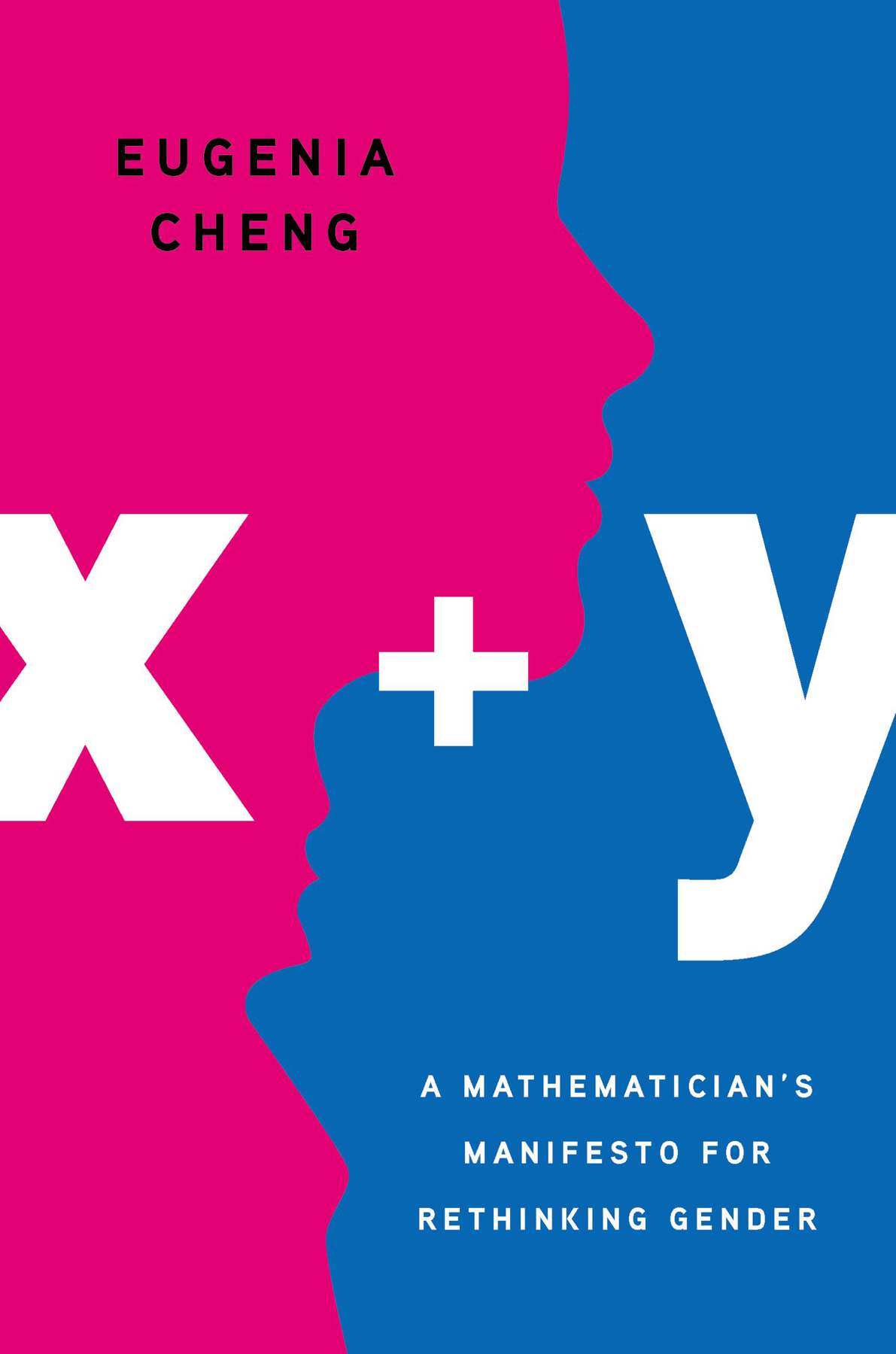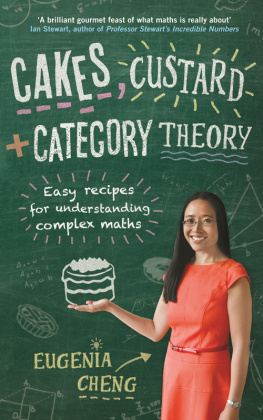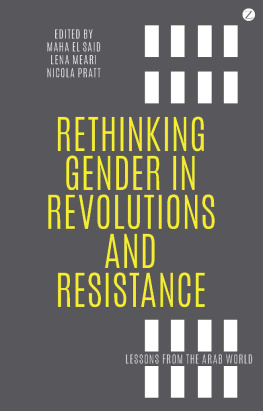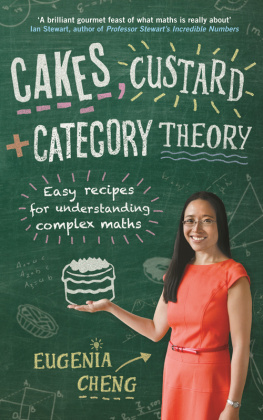Eugenia Cheng - x + y: A Mathematicians Manifesto for Rethinking Gender
Here you can read online Eugenia Cheng - x + y: A Mathematicians Manifesto for Rethinking Gender full text of the book (entire story) in english for free. Download pdf and epub, get meaning, cover and reviews about this ebook. year: 2020, publisher: Basic Books, genre: Children. Description of the work, (preface) as well as reviews are available. Best literature library LitArk.com created for fans of good reading and offers a wide selection of genres:
Romance novel
Science fiction
Adventure
Detective
Science
History
Home and family
Prose
Art
Politics
Computer
Non-fiction
Religion
Business
Children
Humor
Choose a favorite category and find really read worthwhile books. Enjoy immersion in the world of imagination, feel the emotions of the characters or learn something new for yourself, make an fascinating discovery.

- Book:x + y: A Mathematicians Manifesto for Rethinking Gender
- Author:
- Publisher:Basic Books
- Genre:
- Year:2020
- Rating:4 / 5
- Favourites:Add to favourites
- Your mark:
- 80
- 1
- 2
- 3
- 4
- 5
x + y: A Mathematicians Manifesto for Rethinking Gender: summary, description and annotation
We offer to read an annotation, description, summary or preface (depends on what the author of the book "x + y: A Mathematicians Manifesto for Rethinking Gender" wrote himself). If you haven't found the necessary information about the book — write in the comments, we will try to find it.
x + y: A Mathematicians Manifesto for Rethinking Gender — read online for free the complete book (whole text) full work
Below is the text of the book, divided by pages. System saving the place of the last page read, allows you to conveniently read the book "x + y: A Mathematicians Manifesto for Rethinking Gender" online for free, without having to search again every time where you left off. Put a bookmark, and you can go to the page where you finished reading at any time.
Font size:
Interval:
Bookmark:

Copyright 2020 by Eugenia Cheng
Cover design by Chin-Yee Lai
Cover image Pavlo S/Shutterstock.com
Cover copyright 2020 by Hachette Book Group, Inc.
Hachette Book Group supports the right to free expression and the value of copyright. The purpose of copyright is to encourage writers and artists to produce the creative works that enrich our culture.
The scanning, uploading, and distribution of this book without permission is a theft of the authors intellectual property. If you would like permission to use material from the book (other than for review purposes), please contact permissions@hbgusa.com. Thank you for your support of the authors rights.
Basic Books
Hachette Book Group
1290 Avenue of the Americas, New York, NY 10104
www.basicbooks.com
Originally published in June 2020 by Profile Books
First US Edition: August 2020
Published by Basic Books, an imprint of Perseus Books, LLC, a subsidiary of Hachette Book Group, Inc. The Basic Books name and logo is a trademark of the Hachette Book Group.
The Hachette Speakers Bureau provides a wide range of authors for speaking events. To find out more, go to www.hachettespeakersbureau.com or call (866) 376-6591.
The publisher is not responsible for websites (or their content) that are not owned by the publisher.
Library of Congress Cataloging-in-Publication Data
Names: Cheng, Eugenia, author.
Title: x + y : a mathematicians manifesto for rethinking gender / Eugenia Cheng.
Other titles: x plus y
Description: First edition. | New York : Basic Books, [2020] | Includes bibliographical references and index.
Identifiers: LCCN 2020014347 | ISBN 9781541646506 (hardcover) | ISBN 9781541646513 (ebook)
Subjects: LCSH: Sex differences (Psychology)ResearchMethodology. | Sex roleResearchMethodology. | Social sciencesMathematical models. | Categories (Mathematics) | MathematicsSocial aspects.
Classification: LCC BF692.2 .C454 2020 | DDC 155.3/3dc23
LC record available at https://lccn.loc.gov/2020014347
ISBNs: 978-1-5416-4650-6 (hardcover); 978-1-5416-4651-3 (ebook)
E3-20200728-JV-NF-ORI
The Art of Logic in an Illogical World
Beyond Infinity: An Expedition to the Outer Limits of Mathematics
How to Bake : An Edible Exploration of the Mathematics of Mathematics
To and for
the ever-changing congressive constant,
Gregory Peebles
AS I WRITE this, the world is in a state of great uncertainty. It is the middle of March 2020, and a global pandemic is in the process of closing down society as we know it.
It seems impossible to begin this book without mentioning that, but also impossible to know what to say that will still be relevant when the book reaches your hands. The situation is developing faster than we can keep up with, and we dont know what is coming in the approaching days, weeks, months. The range of possibilities is unthinkably wide.
However, one thing that this worldwide crisis has grimly illuminated is a sharp opposition between those who think as individuals and those who think as a community. We see individuals deciding how much risk of infection they are going to take, as if this decision is their own private one, affecting them alone. What we need is individuals acting on behalf of the community, to reduce the risk to the community and protect our collective health.
This contrast between individualistic thinking and community-minded thinking is the major theme throughout this book. It gives me pain to see it being played out so vividly during our current crisis, but it also galvanizes me.
This crisis wasnt there when I started writing this book, and I dont know what state the world will be in while you are reading this book. Whatever the case, I hope the book helps us think more clearly about these contrasting approaches to life, and helps guide us toward a better future.
BEING A WOMAN means many things.
Many of those things really have nothing at all to do with being a womanthey are contrived, invented, imposed, conditioned, unnecessary, obstructive, damaging, and the effects are felt by everyone, not just women.
How can mathematical thinking help?
As I am a woman in the male-dominated field of mathematics, I am often asked about issues of gender: what its like being so outnumbered, what I think of supposed gender differences in ability, what I think we should do about gender imbalances, how we can find more role models.
However, for a long time I wasnt interested in these questions. While I was making my way up through the academic hierarchy, what interested me was ways of thinking and ways of interacting.
When I finally did start thinking about being a woman, the aspect that struck me was: Why had I not felt any need to think about it before? And: How can we get to a place where nobody else needs to think about it either? I dream of a time when we can all think about character instead of gender, have role models based on character instead of gender, and think about the character types in different fields and walks of life instead of the gender balance.
This is rooted in my personal experience as a mathematician, but it extends beyond that to all of my experiences: in the workplace beyond mathematics, in general social interactions, and in the world as a whole, which is still dominated by mennot in sheer number, as in the mathematical world, but in concentration of power.
When I was young I didnt have any female mathematician role models. There were hardly any female mathematicians in the first place, but also I felt no particular affinity with those I did encounter, and no special desire to be like them. I did grow up with strong, high-achieving women around me at all levels, though: my mother, my piano teacher, the headmistress of my school, the UKs prime minister, the Queen.
I worked hard to be successful, but that success was one that was defined by society. It was about grades, prestigious universities, tenure. I tried to be successful according to existing structures and a blueprint handed down to me by previous generations of academics.
I was, in a sense, successful: I looked successful. I was, in another sense, not successful: I didnt feel successful. I realized that the values marking my apparent success as defined by others were not really my values. So I shifted to finding a way to achieve the things I wanted to achieve according to my values of helping others and contributing to society, rather than according to externally imposed markers of excellence.
In the process I learned things about being a womanand things about being a humanthat I had steadfastly ignored before. Things about how we humans are holding ourselves back, individually, interpersonally, structurally, systemically, in the way we think about gender issues.
And the question that always taxes me is: What can I, as a mathematician, contribute? What can I contribute, not just from my experience of life as a mathematician, but from mathematics itself?
Most writing about gender is from the point of view of sociology, anthropology, biology, psychology, or just outright feminist theory (or anti-feminism). Statistics are often involved, for better or for worse: statistics of gender ratios in different situations, statistics of supposed gender differences (or a lack thereof) in randomized tests, statistics of different levels of achievement in different cultures.
Font size:
Interval:
Bookmark:
Similar books «x + y: A Mathematicians Manifesto for Rethinking Gender»
Look at similar books to x + y: A Mathematicians Manifesto for Rethinking Gender. We have selected literature similar in name and meaning in the hope of providing readers with more options to find new, interesting, not yet read works.
Discussion, reviews of the book x + y: A Mathematicians Manifesto for Rethinking Gender and just readers' own opinions. Leave your comments, write what you think about the work, its meaning or the main characters. Specify what exactly you liked and what you didn't like, and why you think so.






